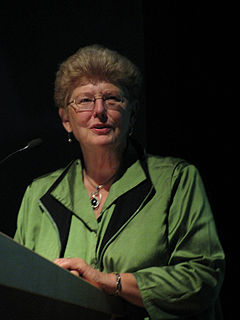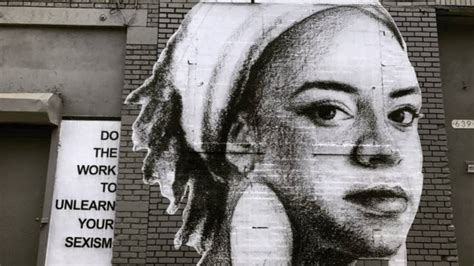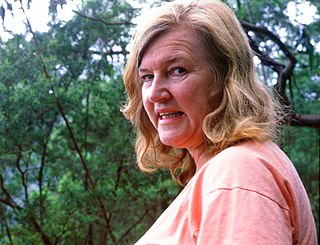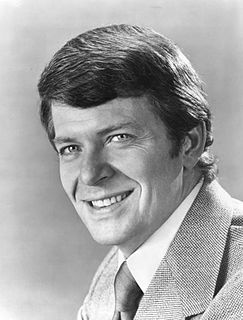Top 321 Hyper Quotes & Sayings - Page 6
Explore popular Hyper quotes.
Last updated on April 16, 2025.
I think a lot of us who had these oddly shaped childhoods, in some ways we're hyper-capable. We're able to take care of ourselves in a lot of ways but it's like we're missing a piece. When everyone went to school to learn how to be a regular person we were sick that day. We compensate other ways. Alcohol and drugs is one of those ways. Instead of learning how to cope with our problems and deal with hardship and deal with anger, we just decide to get drunk and not care.
Debasement was limited at first to one’s own territory. It was then found that one could do better by taking bad coins across the border of neighboring municipalities and exchanging them for good with ignorant common people, bringing back the good coins and debasing them again. More and more mints were established. Debasement accelerated in hyper-fashion until a halt was called after the subsidiary coins became practically worthless, and children played with them in the street, much as recounted in Leo Tolstoy’s short story, Ivan the Fool.
Deep attention, the cognitive style traditionally associated with the humanities, is characterized by concentrating on a single object for long periods (say, a novel by Dickens), ignoring outside stimuli while so engaged, preferring a single information stream, and having a high tolerance for long focus times. Hyper attention is characterized by switching focus rapidly among different tasks, preferring multiple information streams, seeking a high level of stimulation, and having a low tolerance for boredom.
We [Paramore] are very different people at home, but the people that we are on-stage is just a side of us that our crowd and the audience that comes to our shows brings out of us. Different people bring different sides out of each other, and for sure our fans bring out the most hyper and ridiculous side of us because we get so psyched to see everyone when we're on stage.
I'm not Israeli and because I'm not a citizen, it doesn't matter how often I go there - I'm still not Israeli. There's this way I feel so close to so many people there, but I always feel like I'm staring through the glass. And in a way, having this really thin piece of glass between me and this place is incredibly useful for me as a writer, because I'm just so hyper-aware of it. I could take a walk in San Francisco and probably notice a third of the things that I would notice in Israel, because I'm just attuned to everything when I'm there.
We are, in fact, hyper-dimentional objects of some sort which cast a shadow into matter, and the shadow in matter is the body. And at death, what happens basically, is that the shadow withdraws, or the thing which cast the shadow withdraws, and metabolism ceases, and matter which had been organized into a dissipative structure in a very localized area, sustaining itself against entropy by cycling material in and degrading it and expelling it, that whole phenomenon ceases, but the thing which ordered it is not affected by that.
I feel like we're looked at as either completely nonsexual characters or overly sexual characters, and I feel like that affects how we're treated in the public space by men. I believe that women of color experience street harassment in a very hyper way. So I wanted to draw these women in their very normal, regular states and put those images out there in the public for people to see, instead of these other, very sexualized, images of women.
The educational system in the US was a highly predictable victim of the neoliberal reaction, guided by the maxim of "private affluence and public squalor." Funding for public education has sharply declined. As higher education is driven to a business model in accord with neoliberal doctrine, administrative bureaucracy has sharply increased at the expense of faculty and students. Cost-cutting leads to hyper-exploitation of the more vulnerable, creating a new precariat of graduate students and adjuncts surviving on a bare pittance, replacing tenured faculty.
I listen to some of you guys out there, hyper-reformed boys, you're concerned if you preach the gospel to the wrong person, the wrong person might get saved. So you don't want to preach it too good, 'well wait a minute, I don't think you should've been getting saved, I'm not sure you're in the group.' What do you mean in the group! If you breath you're in the group! If you have ears to hear you're in the group! And if you choose not to respond it's your own fault, not God's.
I'm now a pretty good mix of my mother and my stepfather because I'm in general pretty mellow. I'm not hyper-emotional. But there's also this side of me - my mother was an artist and very funny and a dancer and very wild and into fashion. My stepfather traveled a lot, and I kind of took on a role of parenting my mother a lot of times, because she was pretty hard to handle. A bit of a pistol.
Just recognizing and naming that many of the things we treat as historical fact are stories can help erode their power over our sense of identity and thinking. If they are stories rather than "truth," we can write new stories that better represent the country we aspire to be. Our new stories can be about diverse people working together to overcome challenges and make life better for all, about figuring out how to live sustainably on this one planet we share, and on deep respect for cooperation, fairness, and equity instead of promoting hyper-competitive individualism.
The wealth of any ecosystem is its perennials. The primal herbivore-predator-disturbance-rest dance is literally the breath and pulse of the earth. Grasses recycle oxygen far more efficiently than trees. The turnover is faster. Grass reaches out and turns solar energy into carbon. Tillage hyper-aerates the soil, burning out carbon. But because a plant creates bilateral symmetry at the soil horizon, it sloughs off root mass when the top gets chopped off.
To the extent that we hyper-separate ourselves from nature and reduce it conceptually in order to justify domination, we not only lose the ability to empathise and to see the non-human sphere in ethical terms, but also get a false sense of our own character and location that includes an illusory sense of autonomy. The failure to see the non-human domain in the richer terms appropriate to ethics licences supposedly ‘purely instrumental’ relationships that distort our perceptions and enframings, impoverish our relations and make us insensitive to dependencies and interconnections
We are somehow the children of the planet, we are somehow its finest hour; we bind time, we bind the past, we anticipate the future - we are going hyper-spatial; we are claiming a whole new dimension for biology that it never claimed before. We are actually becoming a fourth-dimensional kind of creature. Our future is somehow with us, as we seem to be able to move through metamorphosis into our own imaginations - a super civilization spread throughout space and time. Our future is a mystery, our destiny is to live in the imagination.
Something that had an enormous influence over my relationship with language was my stammer. I had a really bad stammer in my childhood and adolescence, and that imbues you with two things. First, a hyper-sensitivity to grammar, because a stammerer will have problematic sounds, impossible verbal stumbling blocks. Second, writing is just such a joy when you have a problem with speaking. It's so astonishing to watch language coming out of your pen without any hesitation or dysfluency.
Books are surviving in this intense, fragmented, hyper-accelerated present, and my sense and hope is that things will slow down again and people will want more time for a contemplative life. There is no way people can keep up this pace. No one is happy. Two or three hours to read should not be an unattainable thing, although I hope we get to that stage without needing a corporate sponsored app to hold our hand. The utopian in me has my fingers crossed that we haven't quite figured out the digital future just yet. After all, the one thing we know about people: they always surprise.
A favorite science fiction writer of mine is William Faulkner! It was an idea that came to me once, years ago, and I've never quite been able to shake it. This is facetious, on one level at least. There are telepaths in As I Lay Dying. But I think the most compelling thing for me is there are moments with him where I just feel these are not humans talking to each other. These are some hyper-intelligent, yet-to-be-born organisms. The way they look at the past without having any loss of knowledge ? everything that ever happened is still here.
I suppose it is submerged realities that give to dreams their curious air of hyper-reality. But perhaps there is something else as well, something nebulous, gauze-like, through which everything one sees in a dream seems, paradoxically, much clearer. A pond becomes a lake, a breeze becomes a storm, a handful of dust is a desert, a grain of sulphur in the blood is a volcanic inferno. What manner of theater is it, in which we are at once playwright, actor, stage manager, scene painter and audience?
I thought that the R&B / Hip-Hop world really hasn't been explored on film and there's some issues that we're going through right now. It's in a very dangerous place , for women especially, both in terms of the songs that men are singing about. You know, R&B used to be a safe place for women and now it just seems like the songs coming out are so angry but also what women have to come out with. You have to get noticed. You see, it's like a script to follow. You come out hyper sexualized but what happens when you can't pull back from that. That's not authentic to yourself.
Early on a difficult climb, especially a solo climb, you’re hyper-aware of the abyss pulling at your back, constantly feeling its call, its immense hunger. To resist takes tremendous conscious effort, you don’t dare let your guard down for an instant. The void puts you on edge, makes your movements tentative and clumsy. But as the climb continues, you grow accustomed to the exposure, you get used to rubbing shoulders with doom, you come to believe in the reliability of your hands and feet and head. You learn to trust your self-control.
My experiences growing up - my father lived in New York, so I was going out there in the summers and meeting really interesting people and people having what seemed to me to be extraordinary experiences and really taking advantage of these wonderful opportunities. And so I will go - I would go to the big city and watch these people performing onstage and doing television and films. And then I would go back to Hayward, and it just suddenly felt that much smaller and sort of limiting because I had this hyper awareness of how much larger the world was.



















